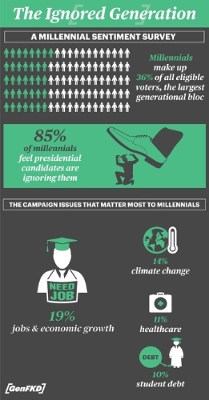Wait until you see the questions (below)!
Across Massachusetts – and across America – thousands of schoolchildren are given sexually graphic, psychologically intrusive surveys by the public schools without parents’ knowledge. These surveys also ask youth to reveal their criminal activity, personal family matters, and other intimate issues.
This is done in the public middle schools and high schools during school hours. At best, parents are told about the surveys in vague terms, but are rarely allowed read them beforehand. The surveys are “officially” anonymous and voluntary. But they are administered by the teacher in a classroom and (according to teachers we’ve talked to) there is often pressure for all kids to participate.
NOTE: Public hearing this WEDNESDAY, May 6, at the 10 am in the Massachusetts State House, Room A2. MassResistance has filed bill H382 in the Legislature to make all these surveys “opt-in” (not “opt out”) and force schools to let parents see them beforehand! Please join us and testify if you can!
The major survey given to kids across America is the “Youth Risk Behavior Survey” put together every two years by the national Centers for Disease Control and handed off to state and local education departments (which they can modify). And there are many similar surveys administered in various districts.
Here are questions from the actual “Youth Risk Behavior Survey” surveysgiven to children in Massachusetts schools, grades 7-12.
How old are you?
A. 12 years old or younger
B. 13 years old
C. 14 years old
D. 15 years old
E. 16 years old
F. 17 years old
G. 18 years old or older
Sexual Behavior
Which of the following best describes you?
A. Heterosexual (straight)
B. Gay or lesbian
C. Bisexual
D. Not sure
A transgender person is someone whose biological sex at birth does not match the way they think or feel about themselves. Are you transgender?
A. No, I am not transgender
B. Yes, I am transgender and I think of myself as really a boy or man
C. Yes, I am transgender and I think of myself as really a girl or woman
D. Yes, I am transgender and I think of myself in some other way
E. I do not know if I am transgender
F. I do not know what this question is asking
Have you ever had sexual intercourse (oral, anal, vaginal)?
A. Yes
B. No
How old were you when you had sexual intercourse (oral, anal, vaginal) for the first time?
A. I have never had sexual intercourse
B. 11 years old or younger
C. 12 years old
D. 13 years old
E. 14 years old
F. 15 years old
G. 16 years old
H. 17 years old or older
During your life, with how many people have you had sexual intercourse (oral, anal, vaginal)?
A. I have never had sexual intercourse
B. 1 person
C. 2 people
D. 3 people
E. 4 people
F. 5 people
G. 6 or more people
During the past 3 months, with how many people did you have sexual intercourse (oral, anal, vaginal)?
A. I have never had sexual intercourse
B. I have had sexual intercourse, but not during the past 3 months
C. 1 person
D. 2 people
E. 3 people
F. 4 people
G. 5 people
H. 6 or more people
Did you drink alcohol or use drugs before you had sexual intercourse (oral, anal, vaginal) the last time?
A. I have never had sexual intercourse
B. Yes
C. No
The last time you had sexual intercourse (oral, anal, vaginal), did you or your partner use a condom?
A. I have never had sexual intercourse
B. Yes
C. No
During your life, with whom have you had sexual contact?
A. I have never had sexual contact
B. Females
C. Males
D. Females and males
How many times have you been pregnant or gotten someone pregnant?
A. 0 times
B. 1 time
C. 2 or more times
D. Not sure
Have you ever been tested for HIV, the virus that causes AIDS? (Do not count tests done if you donated blood.)
A. Yes
B. No
C. Not sure
Have you ever been tested for other sexually transmitted diseases (STDs) such as genital herpes, chlamydia, syphilis, or genital warts?
A. Yes
B. No
C. Not sure
Family and personal life
How often does your parent/guardian(s) wear a seat belt when driving or riding in a car?
A. Never
B. Rarely
C. Sometimes
D. Most of the time
E. Always
Do your parents text, e-mail or use any other form of social media while driving a car or other vehicle?
A. Yes
B. No
Can you talk with at least one of your parents or other adult family members about things that are
important to you?
A. Yes
B. No
My parent/guardian(s) talk to me about the dangers of alcohol and drugs?
A. Yes
B. No
Is there at least one teacher or other adult in this school that you can talk to if you have a problem?
A. Yes
B. No
During the past 12 months, how often did you talk with your parents or other adults in your family about sexuality or ways to prevent HIV infection, other sexually transmitted diseases (STDs), or pregnancy?
A. Not at all during the past 12 months
B. About once during the past 12 months
C. About once every few months
D. About once a month
E. More than once a month
How long have you lived in the United States?
A. Less than 1 year
B. 1 to 3 years
C. 4 to 6 years
D. More than 6 years but not my whole life
E. I have always lived in the United States
Where do you typically sleep at night?
A. At home with my parents or guardians
B. At a friend’s or relative’s home with my parents or guardians
C. At a friend’s or relative’s home without my parents or guardians
D. In a supervised shelter with my parents or guardians
E. In a supervised shelter without my parents or guardians
F. In a hotel or motel, car, park, campground, or other public place with my parents or guardians
G. In a hotel or motel, car, park, campground, or other public place without my parents or guardians
H. Somewhere else
Weapons
During the past 30 days, on how many days did you carry a weapon such as a gun, knife, or club?
A. 0 days
B. 1 day
C. 2 or 3 days
D. 4 or 5 days
E. 6 or more days
During the past 30 days, on how many days did you carry a gun?
A. 0 days
B. 1 day
C. 2 or 3 days
D. 4 or 5 days
E. 6 or more days
Suicide
During the past 12 months, did you ever seriously consider attempting suicide?
A. Yes
B. No
During the past 12 months, did you make a plan about how you would attempt suicide?
A. Yes
B. No
During the past 12 months, how many times did you actually attempt suicide?
A. 0 times
B. 1 time
C. 2 or 3 times
D. 4 or 5 times
E. 6 or more times
Tobacco, alcohol, drugs
How old were you when you smoked a whole cigarette or other tobacco/nicotine product for the first
time?
A. I have never smoked a whole cigarette
B. 8 years old or younger
C. 9 years old
D. 10 years old
E. 11 years old
F. 12 years old
G. 13 years old or older
During the past 30 days, how did you usually get your own cigarettes, or other tobacco/nicotine product?
(Select all that apply)
A. I did not smoke cigarettes during the past 30 days
B. I bought them in a store such as a convenience store, supermarket, discount store, or gas station
C. I got them on the Internet
D. I bought them at a public event such as a concert or sporting event
E. I gave someone else money to buy them for me
F. A person 18 years old or older gave them to me
G. I took them from a store
H. I took them from a family member
I. I took them from someone else’s home
J. I got them some other way
During the past 30 days, what is the largest number of alcoholic drinks you had in a 4 hour period?
A. I did not drink alcohol during the past 30 days
B. 1 or 2 drinks
C. 3 drinks
D. 4 drinks
E. 5 drinks
F. 6 or 7 drinks
G. 8 or 9 drinks
H. 10 or more drinks
During the past 30 days, how many times did you drive a car or other vehicle when you had been drinking alcohol?
A. I did not drive a car or other vehicle during the past 30 days
B. 0 times
C. 1 time
D. 2 or 3 times
E. 4 or 5 times
F. 6 or more times
During the past 30 days, how many times did you use marijuana?
A. 0 times
B. 1 or 2 times
C. 3 to 9 times
D. 10 to 19 times
E. 20 to 39 times
F. 40 or more times
During your life, how many times have you used any form of cocaine, including powder, crack, or freebase?
A. 0 times
B. 1 or 2 times
C. 3 to 9 times
D. 10 to 19 times
E. 20 to 39 times
F. 40 or more times
During your life, how many times have you used heroin (also called smack, junk, or China White)?
A. 0 times
B. 1 or 2 times
C. 3 to 9 times
D. 10 to 19 times
E. 20 to 39 times
F. 40 or more times
During your life, how many times have you taken a prescription drug (such as OxyContin, Percocet, Vicodin, codeine, Adderall, Ritalin, or Xanax) without a doctor’s prescription?
A. 0 times
B. 1 or 2 times
C. 3 to 9 times
D. 10 to 19 times
E. 20 to 39 times
F. 40 or more times
The above questions are from the 2015 Youth Risk Behavior Survey given to students in Canton, Mass, (which parents there were able to get for us) and from the statewide Massachusetts 2013 Youth Risk Behavior Survey posted on the Mass Dept. of Elementary and Secondary Education (DOE) website.
Unscientific, destructive and deceitful
Parents and others who see these surveys are overwhelmingly shocked, upset, and angry. Here are just a few of the problems:
1. Psychological distortion of reality. Going through a battery of questions asking “how many times” a child has engaged in certain sex acts, drug use, illegal or unhealthy activity (or attempting suicide) will likely cause the child to believe he is abnormal if he is not doing it at all – especially since the survey comes from an authority figure.
2. Personal information. Having children to reveal personal issues about themselves and their family can have emotional consequences and from the parents’ point of view is extremely invasive.
3. Grossly unscientific. Experts in surveys we’ve shown these to say they’re unscientific on several levels. The respondents are (officially) self-selected. The surveys include “leading questions” similar to push-polls. The questions are so outrageous that (we’ve been told by students) they provoke exaggeration and untruthful answers.
4. Results used for funding of radical groups. This is the main reason for the existence of these surveys: The surveys create misleading “statistics” that are used by radical groups from Planned Parenthood to LGBT groups to persuade politicians to give more taxpayer money these groups – and to let them into schools – to “help solve” these “huge” problems that these surveys reveal. It is a very emotional appeal, and millions of dollars are budgeted on the basis of these very questionable surveys.
How the Youth Risk surveys are done in Massachusetts
Every two years the Mass. DOE creates a new statewide version of the CDC national Youth Risk Behavior Survey and makes it available to each school district. The school districts can further modify the surveys if they wish and are given wide discretion as to how they notify parents, whether they allow the parents to see the surveys, how the surveys are administered to the students, etc.
In many districts, it’s a nightmare for parents, who rarely even know that their children were given the survey. That’s not an accident. School officials are well aware that if parents were to read these surveys beforehand, almost none of them would want their children to participate.
We telephoned the Mass. DOE to ask them questions about how schools administer the test and whether we can get a copy of the 2015 statewide survey.They were not eager to discuss it with us. We were told they were “too busy” to answer our questions over the phone and we must submit them via email. We did so, and are still waiting for a reply.
Many teachers uncomfortable with the surveys
We have spoken with teachers in Massachusetts who have told us that they are pressured by schools to present the surveys to kids as if it were a normal procedure, and to not to discourage them from taking it. But some teachers do rebel against that. A parent in Canton, Mass., told us that a two years ago a teacher in that town was disciplined for telling his students they had a constitutional right to decline the survey. In 2010 a teacher in Illinois was also reprimanded for that (which was reported in the Chicago Tribune).
Parents and others need to stop this!
It’s been our experience that the people who do this have no interest whatsoever in how this affects children or their families. From the politicians and the activists down to the school officials, it’s mostly about money, ideology, politics, and control. Even when the obvious and harmful flaws are pointed out, there is no effort to change. It will take angry parents and citizens to stop this. That’s why MassResistance filed Bill H382 in the Massachusetts Legislature which will completely empower parents. The fight begins!






